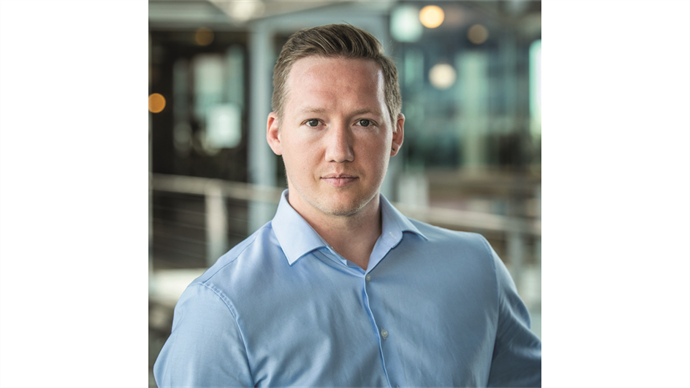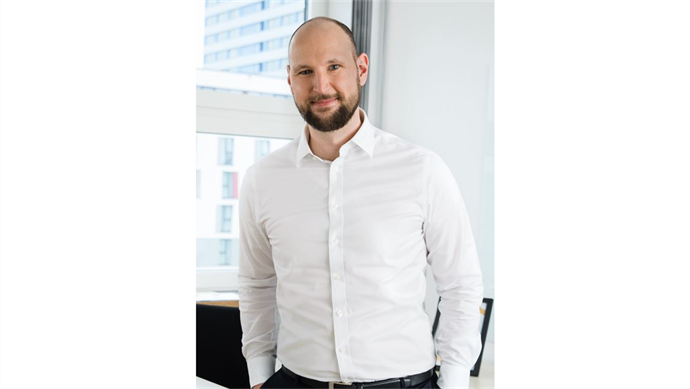Following CTP Group’s acquisition of Deutsche Industrie Grundbesitz (DIG) earlier this year, DIG spokespersons Fabian Kempchen, regional development director north, and Timo Hielscher, regional development director West, discuss the group’s German strategy.
LW: In the wake of the DIG takeover, what are your ambitions for the German market?
Fabian Kempchen and Timo Hielscher (FK & TH): With 665 tenants in 81 municipalities, DIG offers a Germany-wide network of expansion opportunities that CTP intends to unlock with its proven development and asset management capabilities.
Our primary objective is to use our proven expertise to proactively manage and comprehensively modernise DIG’s portfolio of assets, which for many years have been significantly undermanaged.
By taking a hands-on, proactive approach we believe we can increase the quality of the portfolio and in turn improve occupancy levels and capture rental growth. For example, in the eight weeks after the completion of the takeover in February, we secured a total of 22,000 m² of net lettings, in turn reducing vacancy by over 1%.
Currently, it is not clear whether all of the approximately 90 properties have the potential to achieve our standards, especially with regards to sustainability, therefore, we will be examining disposals or reutilisations for some assets.
LW: In an increasingly complex macroeconomic environment, what can DIG offer occupiers seeking to expand?
FK & TH: Demand from occupiers for modern, sustainable logistics assets close to city centres is high. We intend to deploy a development and acquisition programme with the goal of significantly growing the total lettable space of our German portfolio by 2026.
We will seek to capitalise on the infill and redevelopment opportunity that exists in and around the existing portfolio footprint. To date we have identified sites for new projects with the potential to deliver 200,000 m² of gross lettable space, with the start of construction anticipated within the next 18 months.
Germany also boasts a large pool of small to midcap businesses that play a key role in driving GDP and these hidden champions of their field need modern sustainable logistics assets to support their growth.
Municipalities are more receptive to the development of larger 50k m2 logistics assets which include a 30k m2 proportion of smaller multi-let space such as described above – and this is where CTP has a strategic advantage. Through our full-service vertically integrated operating platform, we can develop and manage such assets over the longer term, where other developers prefer the simplicity, less management- intensive approach of just developing 50k m² assets let to one global occupier and then sell to release the development gain.
LW: The labour force challenge is affecting occupiers and real estate owners alike. How does CTP at-tract talent to work for the company?
FK & TH: The Group’s total number of full-time employees grew from 394 to 520 in 2021. It provides its employees with the opportunity for continuous education and professional development, offering a range of learning opportunities such as language courses and sponsorship of further education programmes such as MBAs.
CTP seeks to embed a culture of diversity and inclusion throughout the business in line with its goal to benefit from a truly diverse workforce representing the diversity of the countries in which it operates. As at 31 December 2021, CTP recorded 15 nationalities amongst its employees, with a relatively even gender split of 46% females and 54% men (31 December 2020: 50% females and 50% males), with the average age of staff being 39 years.
LW: What sectors are driving demand for DIG projects in terms of leasing activity?
FK & TH: The strength of the German economy lies in its diversification across many industries and the presence of a large pool of small to mid-size (SME) companies with whom CTP aims to form partnerships. DIG’s broadly diversified portfolio reflects the country’s economic makeup and encompasses a variety of users across various industries including contract logistics, R&D, e-commerce and manufacturing.
DIG’s portfolio is particularly interesting for SMEs, as we can offer space that falls within their requirement profiles, especially in terms of size but also location.
LW: What are the most sought-after locations among your tenants right now? Are there any new ones emerging?
FK & TH: The DIR portfolio consists of 89 assets located in strong economic zones in Germany including Bremen/Hamburg, Berlin, Hannover, Dusseldorf/ Cologne/ Dortmund, Leipzig/Dresden, Frankfurt, Nuremberg, Karlsruhe/Mannheim, Stuttgart and Munich.
These clusters and neighbouring countries are connected by eight key transport corridors, which present highly attractive industrial and logistics locations. These zones also benefit from proximity to densely populated conurbations and strong GDP growth and provide access to a pool of strong small to large-cap businesses.
LW: The warehouse and industrial world has had to take increasing stock of the importance of ESG metrics. What’s CTP’s approach?
FK & TH: CTP takes an ambitious approach in all it does, and this includes the area of ESG. We have set ourselves some bold commitments as a company, both in terms of our environmental and social aspirations and aim to secure CO2-neutral operations in all our properties. For example, within our existing pan-European standing investment portfolio, we develop all new assets to a BREEAM ‘Excellent or Very Good’ with solar ready roofs.
We are also working on developing cogeneration plants on sites and finance all our investment requirements via corporate green bonds. In 2021 CTP achieved a carbon negative footprint for Scope I and II – so our standards are high.
Our immediate priority is to access the environmental credentials of DIG’s portfolio to ensure that we are meeting all regulatory requirements. Then, over the medium to longer term, our ambition is to raise the ESG standards of the existing German portfolio.



































